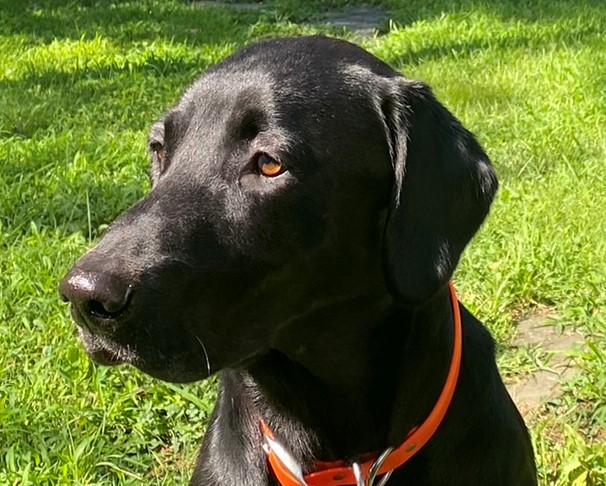Infection Sidelines Sporting Dog

By Dennis Doyle
If there’s one thing my black Lab, Hobbes, loves to do more than run hard in a field of thick cover, rich with the scent of game, it’s to plunge wildly into deep, cool waters in pursuit of one of his favorite bumpers or better yet, a downed duck or goose.
But last weekend, while he assured me he was still eager, it was all we could do to pace around the edges of our favorite river.
Shaking his head again and pulling his leash, he gave me that wistful look that said, “I’m ready boss, why can’t I go, what did I do?” All I could do was stroke his coat and say, “Good boy, easy boy, not yet.”
Hobbes had an ear infection and I was not going to make it worse, though I already had. Over two years ago, he got a nasty ear canal affliction after swimming in the Bay and our vet had warned us that such an infection was a common occurrence. The Bay has always harbored toxins and bacteria, particularly during summer months and it was prudent to be cautious and prepared. She provided eardrops to use after every outing, just in case.
Of course, eventually, the drops ran low, we misplaced the bottle and then eventually forgot about the practice. Hobbes seemed impervious—till now, and since the infection emerged on a weekend, the vet clinics were full up or closed.
We’d been swimming him regularly in the hot weather, rinsing him well but doing little else. Remorse lay heavily on my shoulders as Hobbes scratched the side of his head and whined as he lay down in front of the couch.
Searching our medicine cabinet for some relief for him, I did discover some Aspercreme with lidocaine, antibiotic ointment, and some aspirin tablets. I’m quite aware that you’re not to give a dog any human meds without reviewing them with a vet but I’ve gone over these items with the white coats before and they’ve always given me a green light. So I squirted some crème and ointment on my finger, worked it into his ear canal, buried a single aspirin tablet in a piece of leftover steak and he gobbled it down. Then both of us finally went to sleep.
A Labrador is usually a rugged, trouble-free dog and nothing seems to bother Hobbes. He doesn’t notice any scrapes or cuts and apparently can eat anything without ill effects. Frankly, it’s caused me to be incautious in caring for him—double guilt.
I used to always have plentiful first aid supplies on hand for my German shorthaired pointers and I took particular care of them, mostly because they had virtually no undercoat to protect them; skin sores and cuts were a common occurrence.
Hobbes, on the other hand, is like an armored tank—he doesn’t seem affected by sharp briers or anything else in the fields. He enjoys flinging himself into the thickest cover imaginable.
Now, as we wait for his vet appointment to arrive, I’m ordering up a supply of canine first aid gear and in the years since my shorthaireds, there seems to have been an explosion of items available. Years past I had to discuss most gear with my vet, but now there are scads of assemblies, already vet-approved for all types of animals.
The very first is a simple, soft muzzle. An injury can cause a dog to panic and—no matter how gentle they normally are—can instinctively bite anything perceived as causing the pain, which may include you. Muzzle your pet before you examine the area. Have extra hands to help if only to distract them.
A general dog safe wound and antiseptic spray is helpful to have on hand for minor abrasions and the same in an ointment or salve form for more intense coverage. A small flashlight for closer inspections and rolls of medical gauze will come in handy for more serious injuries and to staunch bleeding. A consult with your vet will fill out the list.
These suggestions are only intended for short-term treatment and a prompt appointment with a vet should be scheduled to insure the animal’s well being. Keep your vet’s phone number with you including the emergency service contact numbers.
And always remember the mantra of the adventurous sportsperson, “When you least expect it, expect it.”
